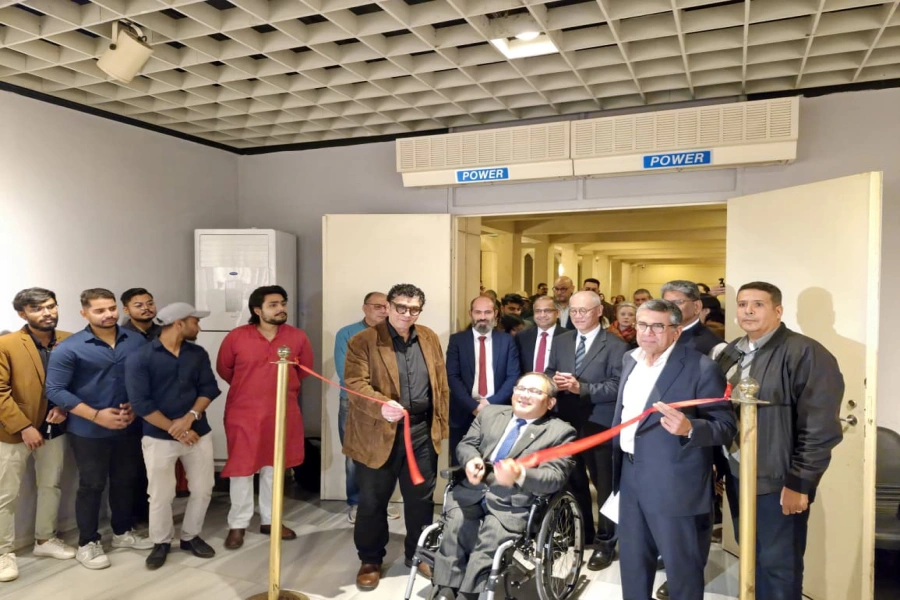The word schadenfreude comes from German; it stands for taking pleasure in other’s pain or misfortune. In German language, schaden means damage or harm, and freude means joy or pleasure. We may call the culture of khuching as Nepali version of schadenfruede.
Recent national calamity situation, produced by heavy downpour, has brought to the fore our hidden culture of schadenfruede or khuching culture into the limelight.
Keeping aside their heavy criticisms on state actions and inactions in the aftermath of national disaster, RSP honchos are adept in saying, “the 2/3rd strength of the government cannot match 2-3 days of rainfall”. I would say, this is a subtle, if not a direct expression of khuching culture. Even PM Oli’s lame-duck excuses, such as claiming he was out of the country before the rains arrived or that 'it took a day’s flight to return home,' reflect a khuching culture more than genuine helplessness. The media heavily criticized his statement, “not in the USA to milk a buffalo”.
There are other pundits putting the blame on “sweating of Dolkha Bhimsen” and “accidental fall of Kumari during Indrajatra festival”. There is even an explanation indicating a bad omen on PM Oli’s ascendancy to the power. In fact, since Day One of his arrival, some incidents have been taking place in the country.
'Cycle Culture in Painting' workshop organized to promote cycle...

In a khuching culture, instead of extending a helping hand, one looks for an easy scapegoat, adept yourself into playing blame-game and maximize your pleasure by putting the blame on others or giving lame duck excuses like “I told you so” or offering unsolicited advice like “Chovar gorge outlet needs to be enlarged to flush out the water and save the valley from flooding”. This time, we did not hear “rain water harvesting”, probably, we had too much rain than expected.
In an hour of crisis, even donor agencies and countries seem to have kept quiet or prefer to maintain a low profile. Maybe, donor fatigue has set in. Could this also be a part of their khuching culture?
The human cost may be low, by the time of this writing, 244 have died and 19 are still missing, but the scale of damage is far more severe than that of the April 2015 earthquake. Moreover, the disaster came at a time when the country was poised for celebrating the Dashain festival, when people were getting ready for a vacation and social gathering and when farmers were getting ready for harvesting paddy plantations. The floods and landslides took away roads, bridges, culverts, electricity power houses, schools, residential houses, business establishments and everything in one go. Nepal’s development efforts look like draining water over the sand. And all this happened right in front of the eyes of the capital city - the political hotbed and where the media is most accessible and vocal.
However, more damaging is the prevalence of the subtle culture of khuching. Instead of extending support and sympathy, the victims have been blamed for all the ills. They are blamed for rampant and illegal encroachment of river banks, random, indiscriminate excavation of sands and boulders, operation of politically protected crusher industries, indiscriminate land plotting and construction of roads without environmental assessments.
In the social media, one can find plethora of comments upholding recent court verdict, including KMC mayor’s hasty decision to ratify court verdict, outlining new standards determining river banks in the Kathmandu Valley. Again, the debate is an expression and extension of our khuching culture.
Definitely, the verdict must have irritated local landowners and new settlers, but the social media took flooding as nature's way of punishing the culprits. How many times have we read “It is not rivers encroaching lands, it is the other way round”? To some, the flood could be a blessing in disguise - particularly, to vacate squatters from the river banks. But flooding is not and cannot be a rational solution to the problem. Soon there will be more influx of migrants into the Valley as a result of displacement. That means more problems related to squatters in the days to come.
Due to sky rocketing land prices and heavy migration, obviously, it is cheaper to establish industries, hospitals and even some residential colonies near river banks. And they turned out to be the first casualty of the disaster. There is no point blaming a resort for having it established near the river banks. Can you blame snow while climbing Everest?
The attitude of schadenfreude may have arisen because relatively well-off people in the capital city bore the brunt. But I would say, khuching culture is rooted into the divisive character of our society. Over the last two decades or so, we have become an even more divided nation in terms of wealth, living standard, residency, caste, ethnicity, language and religion. The khuching culture cannot be put to an end in a society that is so much unequal in everything. It has become a way of rationalizing.




-1200x560-1771928761.webp)



































